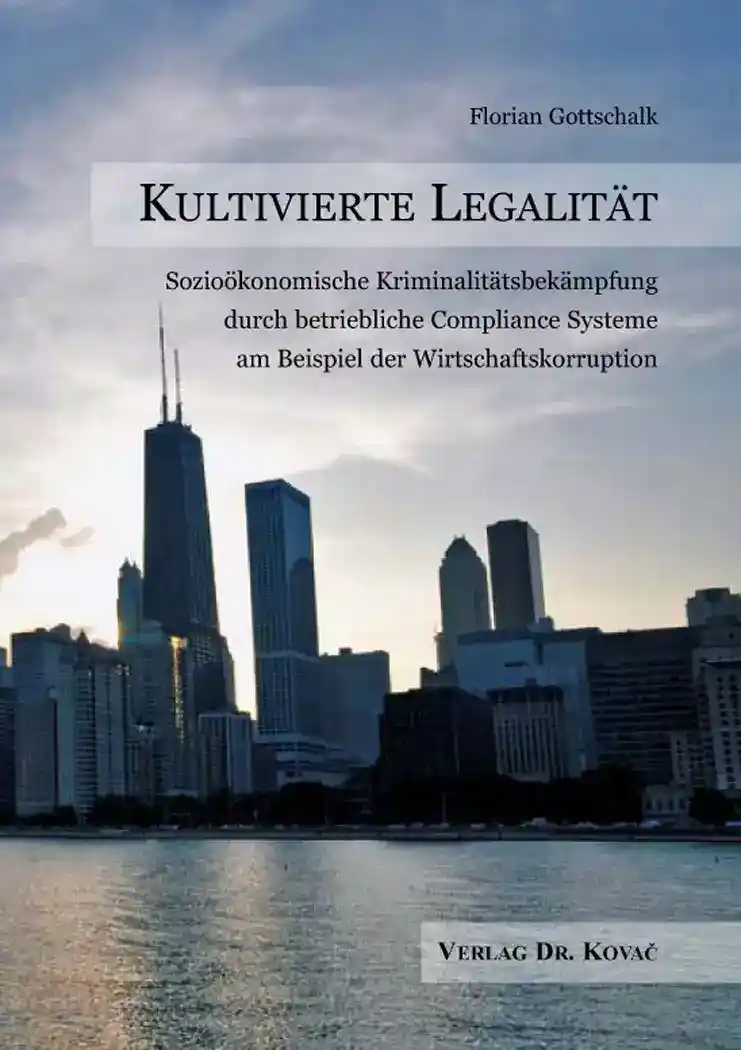Florian GottschalkKultivierte Legalität – Sozioökonomische Kriminalitätsbekämpfung durch betriebliche Compliance Systeme am Beispiel der Wirtschaftskorruption
COMPLIANCE, volume 19
Hamburg 2018, 334 pages
ISBN 978-3-339-10378-9 (print)
ISBN 978-3-339-10379-6 (eBook)
About this book deutschenglish
No matter if small business, mid-sized enterprise or global corporation – corruption can occur in every company. Appropriate preventive measures are therefore obligatory – at least since the enormous fines in several corruption scandals. Although the topic compliance increased its popularity, the law does not contain any clear advice, guidance or provision regarding the design of preventive measures. Thus, the topic compliance remains a phenomenon. Neither its contentual structures nor its links to the topics corruption or criminality are clearly or even finally defined. This status is the book’s object and motivation at the same time. It wants to inform not only about the interdisciplinary links of the phenomenon compliance, but also provide an integral concept for an operational reasonable dealing with corruption and criminality.
To fulfil this aspiration, the book is divided into six paragraphs. First, § 1 provides an overview by illustrating the evolution of the topics economic corruption and compliance and by explaining the necessary methodology for answering the identified questions. Following this, § 2 analyses the interdisciplinary structures of the phenomenon compliance and shows that law, economics and ethics have to be connected to provide for a rational operational dealing with economic crime (socioeconomic regulatory approach). § 3 and § 4 then deal with the corporate (corporate compliance) and criminal/administrative offence law’s (criminal compliance) dogmatic structures and close the identified provisional gaps in due consideration of the socioeconomic findings (integrative interpretation). § 5 finally describes a socioeconomic regulatory concept, which uses a cultural as well as formal risk control for a rational operational dealing with economic crime. As a last point, § 6 concludes the findings and connects them to an interactive regulatory model.
